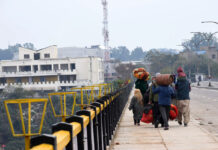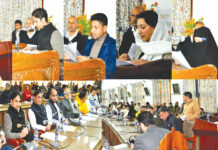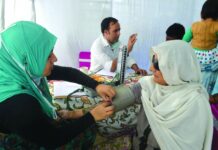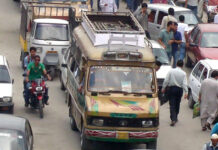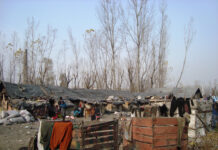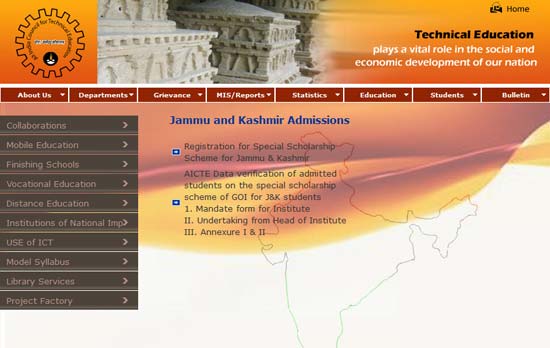Four months after the summer unrest of 2010, the efforts to fix the responsibility for the civilian killings is being fought in the court rooms. A Kashmir Life report.
In a departure from the past precedent a separatist leader has filed a Public Interest Litigation in the High Court seeking registration of cases and investigation into the 117 killings during the summer unrest of 2010 besides monitoring of the investigations by the court.
JKLF leader Yasin Malik filed the PIL, making it the first ever case of a separatist leader taking judicial recourse to seek investigations and justice.
Meanwhile, CRPF have got an order from the court restraining a commission of inquiry (CoI) led by two retired High Court judges from submitting its findings to the government in 17 deaths without the permission of the High Court. The CoI was appointed by the Omar Abdullah government with a limited mandate at the peak of unrest last year to investigate 17 civilian killings that had occurred since June 11.
The killing of a twelfth standard student Tufail Matoo on June 11 in police action, triggered massive protests across the valley leading to a prolonged spell of curfews and shutdowns.
While curfews and strikes devoured almost five months of the working season in Kashmir, the unrest added another 116 deaths to the toll. Even after the situation returned to some sort of normalcy, there is no indication that the government wants to fix the responsibility for such a huge number of deaths.
Already, most of the bereaved families have been given half a million rupees as relief that certifies the slain were civilians.
“My son has two graves. When police shot him, his skull broke and his brain spilled out, they (police) did not even see that and took his corpse. The locals took his brain and buried it in a graveyard near the stadium, while his body is buried in Eidgah,” said Ashraf Mattoo, father of Tufail.
Police refused to register an FIR in the case until the court directed them to do so. Till date, there is no progress in the investigations. “I know we cannot get justice from this system. But, we will struggle till our last breath,” he asserted informing that they are receiving “threats from various security agencies to stop pursuing the case”.
 In the PIL Malik has argued that though the government has appointed a CoI, its mandate is limited. “The questions holding true for the 17 killings referred to by the COI, also hold true for other deaths,” the petition filed by renowned lawyer Zaffar Shah on Malik’s behalf reads.
In the PIL Malik has argued that though the government has appointed a CoI, its mandate is limited. “The questions holding true for the 17 killings referred to by the COI, also hold true for other deaths,” the petition filed by renowned lawyer Zaffar Shah on Malik’s behalf reads.
Malik said that barring 17 cases in which FIRs have been registered, police has merely recorded the killings as routine. The PIL argues that it is necessary for the court to ensure that evidence is collected properly, killers identified and their prosecution sought.
The PIL has also triggered a debate by qualifying the deaths as “murder within the meaning of law”. The PIL pleads that even if the demonstrations become disorderly for any reason and resort to stone pelting, there is no law that authorises opening fire on them. Seeking evolution of a mechanism for handling such situations in future the PIL contends, “The methodology used in confronting the public demonstrations was the same as are used to combat military operations. The persons killed were totally unarmed.”
But the existing CoI is fighting its own battle in the court. It was supposed to submit its findings by the end of January. But CRPF got a High Court order restraining CoI from submitting its report to the government without the permission of the court.
The CoI was appointed by Omar government on July 27, 2010 with Justice Syed Bashir-ud-Din and Justice J P Nargotra as its members to look into 17 killings (seven each in Srinagar and Baramulla and three in Anantnag) that took place between June 11 and July 19. After over two months of working, it issued notices to IG (operations) CRPF on December 21 after finding culpability of CRPF personnel in various killings, besides state police.
CRPF counsel B S Salathia who also heads the Jammu Bar Association approached the CoI twice on December 30, 2010 and January 8, 2011seeking relevant documents against its personnel. Initially they were denied records but later on January 11 they were shown the records but not given the copies.
The paramilitary force finally petitioned the High Court. The petition accused the CoI chairman Justice (retd) Syed Bashir-ud-Din, who also heads the SHRC, of being biased and prejudicial towards the CRPF.
The Chairman, the CRPF petition filed by its Special DG and IG (operations) Kashmir says, in a statement on July 30, 2010 had stated that firing on rioters was unjustified. “The statement leaves no doubt that he has a preconceived notion and it shall be no exaggeration to say that he has already decided the issue even before holding the inquiry,” the petition said, dubbing the enquiry as “an eye wash”.
Petitioners say they have lost faith in the CoI and in case the commission was allowed to proceed with the inquiry it is “sure to indict the law abiding and innocent CRPF troops”.
Justice Sunil Hali issued notices to the state government and the CoI directing them to explain their position within four weeks and restrained the commission from submitting its report.
On its part, the state police have informed the CoI that security forces either fired in self defence or skipped using live ammunition in most of the cases that are being investigated.
In its report to the CoI, the SSP Baramulla said that security forces and police were forced to fire on protestors when they were attacked by unruly mob with stones.
Police has accepted culpability of its men only in the Anantnag (Islamabad) incident in which three young men were killed. Eyewitnesses to the incident say that they can identify the killers. State police chief Kuldeep Khoda informed the CoI in December, that identification parade is yet to take place. Police have arrested one cop in Anantnag killings.


